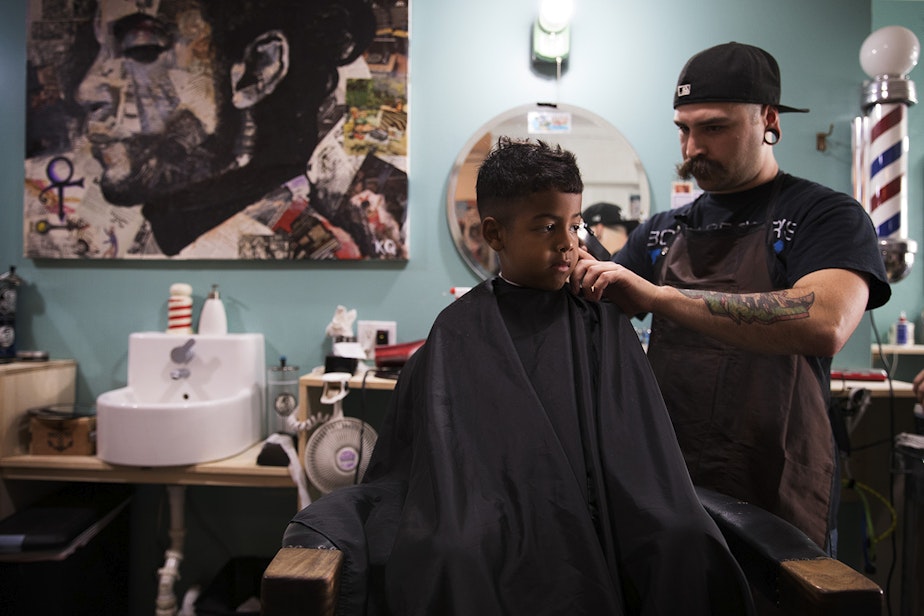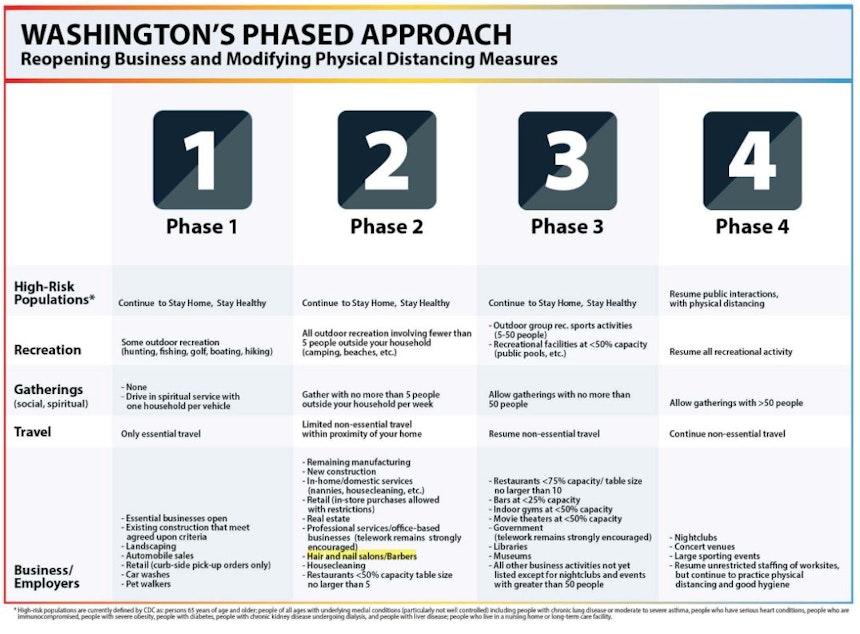This is why you might not be getting a haircut as soon as you want

Many barbers and hairdressers are worried by the idea that they could be right up in front of our faces by June.
“I don't want it to happen. I'm not ready for it to happen,” said Kelli Wimbley, owner of Andro, in Pioneer Square.
"Because there's so many things to think about. And the fact that barbershops and salons are in the second phase, which is like direct communication with people physically, you know -- in contact."
There’s a petition going around that would keep salons and barbershops closed until phase four, which could be months from now.
Of course, there is pressure right now: People who got their hair cut or colored before the salons shut down in March would very much like to get back in the chair.

Sponsored
But barber shops and salons are going to need a lot of personal protective gear, disinfectant, and other supplies to make that happen.
Wimbley said she's been trying and failing to procure enough gloves and sanitizer. And masks are becoming a huge issue.
“You have to offer a mask if they don't have one when they come in for a cut,” Wimbley said. "So now we also have to have this surplus of disposable masks.”
Barbers and hairdresser will need to clean up intensively after each client. “How many haircuts are we going to get in a day if we have to break down, essentially, the station after every single person?” Wimbley asked.
Kimberly Cummings is concerned about being able to make enough money to support her family when she finally gets back to work. “The only way to make a lot of money is to touch multiple people, as many as I can and turn and turn and turn that chair,” she said.
Sponsored
But in phase two there will be limits on how many people can be in a salon at any one time.
“So we're all going to cut our schedule in half and work half as much because we can't double book,” Cummings said. “I'm going to make even less than I did before."
So many things about her job are going to be different. The governor’s guidelines mean that when she shampoos people, she has to put a towel over their face. There’s also the issue of how the hair is dried. Cummings worries that a blow drying could blow coronavirus all over the salon.
But the whole thing -- the proximity to people outside her household after weeks of staying home and the pressure to make money -- worries Cummings.
Sponsored
Cummings said her salon’s appointment book is already full for June 1. She wishes the pressure wasn’t there.
Cummings has been receiving unemployment benefits all this time. And unemployment insurance plus the $600 weekly boost from the federal government has paid her better than her job did when she was working back in March.
But when the governor clears phase two to begin and her salon owner calls her back to work, that’s over. She worries that in addition to not being able to make enough money to support her family, she may also be unsafe.
The governor’s guidelines say that hairdressers and barbers who do not feel safe have options that could let them keep receiving unemployment.
“There should not be a fear of reporting in your claim, you refused work because you didn’t think the environment was safe.” said Dan Zeitlin, policy director at the state employment security department. “In a sense, the system favors the claimant in that you will continue to be conditionally paid.”
Sponsored
But that is while the state investigates the claim. That investigation could find the employee is right -- or the employer -- and even that the employee did not tell the truth. There are also provisions for family and medical leave that may help. Cummings is hoping for some clarity, soon.
“We know, you guys want your hair done," she said. "We're all in this together. I would just want everybody to know that we also have families and kids to come home to. This is scary and we don't want to bring it home.”



